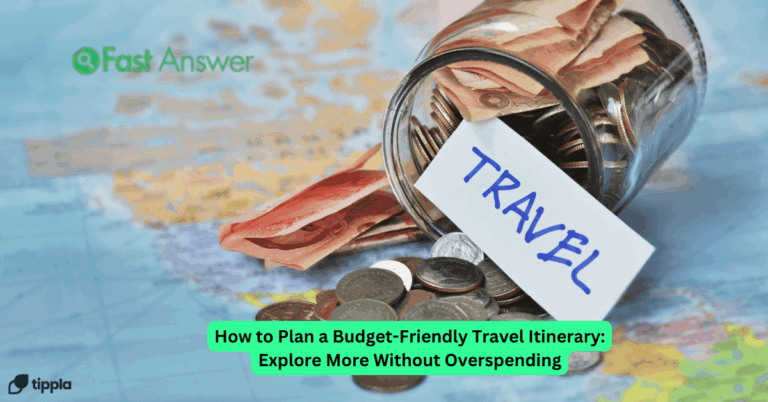Tips for Managing Money While Traveling Abroad: A Comprehensive Guide
Traveling abroad offers exciting opportunities to explore new cultures, discover stunning landscapes, and make lasting memories. However, managing your finances in a foreign country can be a challenge. Currency exchange rates, unfamiliar banking systems, and different spending habits can create uncertainty for travelers. Efficiently managing your money while traveling abroad not only ensures you stay within your budget but also protects you from potential financial mishaps. Whether you’re a seasoned traveler or a first-time adventurer, understanding how to manage your money while abroad is crucial for a smooth trip. In this article, we’ll explore practical tips for handling your finances effectively when traveling overseas, helping you make the most of your journey without financial stress.
Plan Your Budget in Advance
Before embarking on your journey, it’s important to set a clear budget. Take time to research the cost of living in your destination, including accommodation, food, transportation, and entertainment. Understanding local prices will help you create a realistic spending plan. It’s also wise to account for any unexpected expenses, such as emergencies or last-minute activities. A well-thought-out budget gives you a clear picture of your financial goals and ensures you won’t run out of funds midway through your trip. Using budgeting apps can be a great tool for keeping track of your spending while abroad.
Use Internationally Accepted Credit and Debit Cards
Using credit or debit cards that are widely accepted internationally can save you the trouble of carrying large amounts of cash. Look for cards that offer no foreign transaction fees, as these can add up quickly. Notify your bank about your travel dates to avoid your card being flagged for suspicious activity. Some cards also offer travel rewards and perks, such as travel insurance or cashback on purchases. Just be cautious about hidden fees, such as ATM withdrawal charges, and try to minimize the number of withdrawals to reduce costs.
Have Backup Payment Methods
While cards are convenient, it’s important to have backup payment methods in case of emergencies or technical difficulties. Carry a small amount of local currency for situations where cards aren’t accepted, such as in remote areas or at small vendors. You can exchange money at local banks or exchange offices, but it’s often a good idea to avoid airport currency exchange booths, as they tend to have higher fees. Additionally, consider using travel money cards or prepaid cards, which allow you to load money in different currencies before you leave and lock in exchange rates.
Stay Aware of Exchange Rates and Fees
Understanding exchange rates is crucial to ensuring you get a fair deal when converting your money. Use currency converter apps to stay updated on the latest rates and avoid unfavorable exchanges. Try to exchange your money at local banks or ATMs, which usually offer better rates than exchange offices. Avoid exchanging money at airports or tourist hotspots, where the rates are typically less favorable. Additionally, be mindful of ATM withdrawal fees, as they can add up, especially if you make frequent withdrawals.
Track Your Spending While Abroad
Staying on top of your spending while traveling abroad is key to sticking to your budget. Use financial apps to track your expenses in real time and categorize them to ensure you’re not overspending. Regularly review your budget and adjust it if necessary based on your actual expenditures. Keeping receipts for major purchases can also help you monitor your spending and make sure you’re staying within your budget. This proactive approach to managing your finances will give you peace of mind and prevent any unpleasant surprises when you check your bank balance.
Frequently Asked Questions
How do I avoid high foreign transaction fees?
Look for credit and debit cards that don’t charge foreign transaction fees. These cards can save you money when making purchases or withdrawing cash abroad.
What’s the best way to exchange currency?
The best way to exchange currency is at local banks or ATMs, as they typically offer better rates than exchange offices or airports. Avoid exchanging money in tourist-heavy areas for better deals.
Can I use my phone to handle financial transactions abroad?
Yes, many payment apps, such as Apple Pay, Google Pay, and Venmo, can be used abroad as long as they’re accepted at local vendors. Just ensure your phone plan allows for international use, or consider using a local SIM card.
Should I use cash or cards while traveling abroad?
Both options have their benefits. Using cards is more convenient and secure, but carrying a small amount of local currency is essential for situations where cards aren’t accepted. Aim for a balance between both.
How can I track my spending while abroad?
Use budgeting apps or financial management tools that allow you to categorize your expenses and keep track of your spending in real time. Regularly review your financial situation to stay on track.

